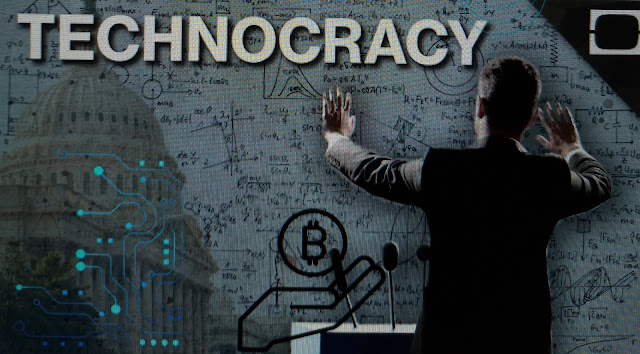What does Technocracy means?Technocracy is a system of governance in which decision-making is based on technical expertise and knowledge, rather than on political considerations. In a technocracy, experts in various fields are appointed to positions of power and influence, and are responsible for making decisions that affect society as a whole. The goal of technocracy is to ensure that decisions are made based on objective data and evidence, rather than on political ideology or personal interests. The concept of technocracy has been around for many years, but has gained renewed interest in recent years as technology has become increasingly important in our lives.
The origin and history of Technocracy
The idea of technocracy has been around for several centuries, but the modern concept of technocracy emerged in the early 20th century. In the 1910s and 1920s, a group of engineers and scientists in the United States proposed a system of governance based on technical expertise, which they believed would be more efficient and effective than traditional political systems. This movement became known as technocracy.
In 1932, the Technocracy Movement was founded in North America, advocating for a system of governance based on the rule of experts. The movement gained widespread support during the Great Depression, when many people were disillusioned with the failures of traditional political systems.
However, the technocratic movement began to decline in the 1940s and 1950s, as people became more skeptical of the idea of experts ruling society. Critics argued that technocracy would lead to a loss of individual freedoms and a lack of democratic accountability.
Despite these criticisms, the concept of technocracy has continued to evolve and gain renewed interest in recent years, as technology has become increasingly important in society. Today, many people believe that a technocratic approach to governance could help address complex issues such as climate change, economic inequality, and public health crises.
What are the characteristics of Technocracy?
The characteristics of technocracy include:
Rule by experts: Technocracy is based on the idea that decisions should be made by those with the relevant technical expertise and knowledge in a particular field, rather than by politicians or elected representatives.
Emphasis on efficiency: Technocratic systems prioritize efficiency and effectiveness in decision-making, with the goal of achieving the best possible outcomes for society as a whole.
Data-driven decision-making: Technocrats rely on data and evidence to inform their decision-making, rather than on personal beliefs or political ideologies.
Merit-based system: Technocracy is often based on a merit-based system, in which individuals are selected for positions of power based on their technical expertise and qualifications.
Centralized decision-making: In a technocracy, decision-making is often centralized, with power and authority held by a select group of experts.
Lack of political influence: Technocratic systems are designed to minimize the influence of political interests, such as political parties or interest groups, in decision-making.
Skepticism towards democracy: Technocrats often view democracy with skepticism, believing that the general public may not have the technical knowledge or expertise to make informed decisions about complex issues.
What are the cons of Technocracy?
Cons of technocracy:
Lack of democratic accountability: Technocratic systems may lack democratic accountability, as decision-making is often centralized and removed from public scrutiny.
Limited diversity of perspectives: Technocracy can lead to a limited diversity of perspectives and ideas, as decision-making is dominated by a select group of experts.
Risk of elitism: Technocracy can lead to an elitist approach to governance, where a small group of experts hold all the decision-making power.
Limited representation: Technocratic systems may not adequately represent the interests and needs of all members of society, particularly those who lack technical expertise.
Lack of legitimacy: Technocratic systems may lack legitimacy in the eyes of the public, particularly if they are seen as being undemocratic or unaccountable.
The difference between Democracy and Technocracy?
Democracy and technocracy are two different systems of governance with distinct characteristics:
Democracy: Based on the principle of popular sovereignty, where power rests with the people.
Emphasis on free and fair elections, where citizens have the right to choose their leaders.
Decisions are made through a system of checks and balances, with power being distributed among different branches of government.
Decisions are made through a representative system, where elected officials are accountable to their constituents.
Decisions are often based on the will of the majority, with protections in place for the rights of minorities.
Technocracy: Based on the principle of rule by experts, where power rests with individuals with relevant technical expertise and knowledge.
Emphasis on data and evidence-based decision-making, rather than on political ideology or personal interests.
Decisions are often centralized, with power being concentrated in the hands of a small group of experts.
Decisions are made based on technical expertise and qualifications, rather than on popularity or political connections.
Technocracy may view democracy with skepticism, believing that the general public may not have the technical knowledge or expertise to make informed decisions about complex issues.
Overall, the key difference between democracy and technocracy is the source of power and decision-making authority. In a democracy, power rests with the people, and decisions are made through a representative system. In a technocracy, power rests with experts, and decisions are made based on technical expertise and qualifications. Thanks for reading, if you like my post please leave your comment and follow me.



If you like my post, please leave your comment and follow me
ReplyDelete